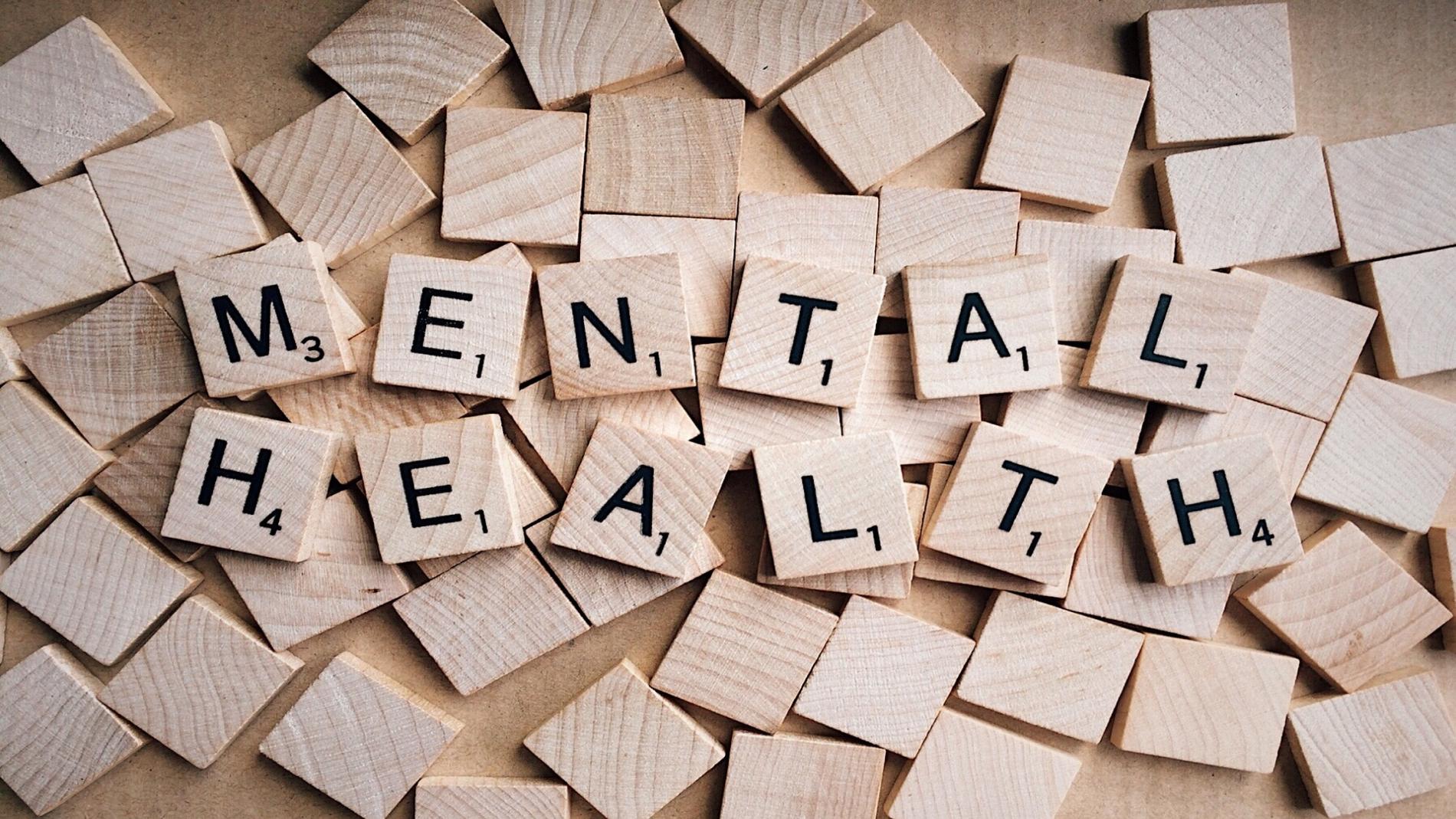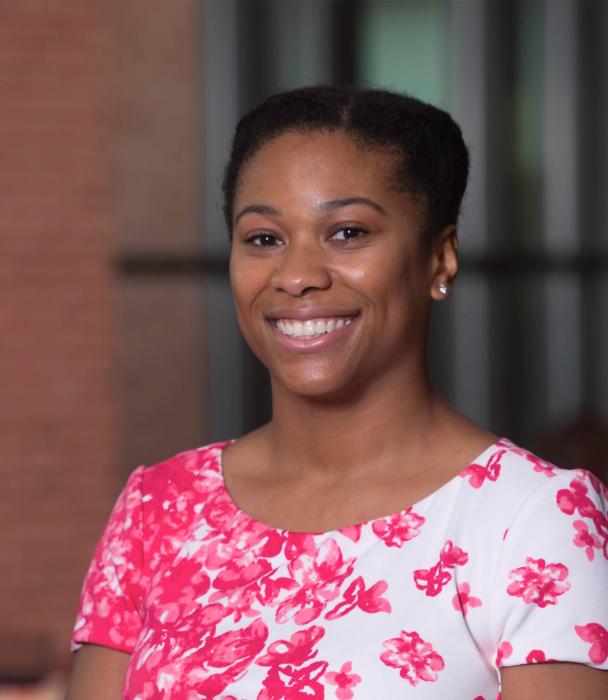
Sarah Launderville has found success as the executive director for the Vermont Center for Independent Living, an adjunct faculty member for Springfield College St. Johnsbury, and alumna of Springfield College, but the journey wasn’t always a smooth one. Sarah sat down with Integrated Marketing Coordinator Shannan Fields to discuss her struggles with mental health as a student and “how she found her voice.”
I recently had the opportunity to speak with Sarah Launderville, executive director of the Vermont Center for Independent Living, adjunct faculty member, and alumna of Springfield College. We cleared our schedules to discuss mental health and the student experience. In addition to having her own experiences with mental health, Launderville has been an advocate for people with disabilities since 1997. During our conversation, we explored Launderville’s journey with mental health while being a student, and how she found her voice.
Launderville was a passionate youth with a dream to become an elementary school teacher. Her initial college experience was her first time living on her own and she felt free and independent. But she also felt “a bit different.” Her symptoms became worse at school and she hid that she was hearing voices and wasn’t able to remember large periods of time. Soon she began failing her classes. She was advised to go to the school’s counselor, who was helpful but could not provide her with the support she needed. The school administration suggested she go back home and take a couple of classes at a local college before coming back. She did just that, unfortunately when she tried to return the school did not allow her back. At that time her dreams were cut short and she felt worthless. “I didn’t have the years of experience where I could advocate for myself. I was really at a low point, which led me to go home and live with my family again, but my symptoms just kept getting worse. That coupled with the feeling of…worthlessness led to my first hospitalization.” This was her first of 14 hospitalizations. Knowing that this wasn’t a sustainable solution her parents and doctors worked to move her to a group home in Vermont. She began a teaching job but was fired after they learned about her diagnosis. Her case manager helped her to apply for and begin receiving a disability benefit as she looked for more work.
Despite the support, these experiences led to shame. “I was really embarrassed about the diagnoses I had been given, I certainly didn’t feel any self-worth and that’s taken a really long time to get to the point where I could have a good amount of self-esteem… I didn’t want people to know I lived in a group home… and so there was another level of shame that came from being on benefits, public benefits, living in subsidized housing because I couldn’t afford to live in a traditional apartment. Those pieces of shame kind of…piled on and I saw my mental health issues as a barrier to me being like everyone else and being able to get and keep employment and finish school.”
As she was searching for work, she found an ad for a personal assistant position at the Vermont Center for Independent Living. This interview would change the trajectory of her life. As she sat down for her interview, she realized she was experiencing a different reality than what she had so far. “Everyone around the table had a disability of some sort and they talked to me about disabilities being part of the human experience and they talked to me about disability pride… I felt really comfortable… I really wanted to spend time with this organization and with these people…” She ended up getting the job, but it was still several years before she found her voice. One of the moments she credits for becoming an advocate for herself happened after she joined a grassroots group called ADAPT. ADAPT held a public forum and invited decision and lawmakers from Washington D.C. to hear stories from individuals who lived in institutions—defined as nursing homes, mental health, or other developmental disability institutions.
“…So I told my story, a quick version of it, and I focused on pieces like how I picked up smoking when I was hospitalized because that was the only way you were allowed to go outside...things like that. But it was the first time I openly said anything and it was met with so much love because I think there were about 60 other people that day that shared their story and it showed this peace where no matter what your disability is, when we’re locking people up, when we’re treating them as less than or...when you are being told you can’t work or you can’t do this and you can’t do that, how impactful that is to individuals…For some reason, I’ve been allowed and I feel comfortable enough to tell my story. Even though it was awful anxiety and all that sort of stuff. But I felt like there are so many people that are not given that opportunity that they are stuck in an institution still, they’re stuck in this level of thinking and reality that they will never be able to come out of because they don’t have the same support I have. And so I felt it was really important to be able to continue to do that work…Now it's more about empowering others. I’m a white, middle-class female and I have way more access to mental health services than counterparts of mine who live in different communities and don’t have as much privilege as I have.”
Below is an edited snippet of the rest of our conversation.
How does Springfield College empower students with mental health issues? And in your opinion, how can they improve?
“I think where Springfield College does really well, even in teaching adjunct faculty, is how you support a student holistically, and that really aligns well with what I think as an advocate. That we are not our diagnosis, and this is for disabilities across the board, not just mental health. We are not the barriers we experience, we are human, and we are going to take that human experience. We figure out how does that student learn best and how does a student have conversations with instructors around that.
I think where everyone can always do better is having that knowledge for students as they come into the campus and I know that our campus does this. Many students might not know what their rights are or their responsibilities under the state laws or the Americans with Disabilities Act. I think the more we educate people with…the rights that [they] have, that’s helpful. I like that Springfield College puts that right in every syllabus because that alerts the student, oh there’s something here for me, because disability can happen at any time. Somebody could be three or four semesters into their college experience and have disability and mental health issues pop up and that’s when they are going to need to have that. So, having that support and having that information available in every class and in writing, I think is brilliant.”
Is there any advice you wished you received in college regarding mental health?
How would you suggest students who are struggling seek support or get help?
“There are different kinds of support, there might be help on campus that you can go and seek out, but I would expand it to look towards what other community supports are out there and what somebody might feel most comfortable with because one size certainly does not fit all…talk therapy might be really important to one person, but another person might respond well to going to yoga and having that experience…if spirituality important to them, maybe there’s an avenue that way…"
Is there anything you would like to talk about that I haven’t asked?
“I think talking about diagnosis is really important. Sometimes people are going into mental health systems and are given these diagnoses, and the way that we as a society slap diagnoses on people, I think can be really harmful...There’s a need to treat people as humans…If I could see something change within the system…[and] I know the whole system is changing on some level, but I think that looking at how we make sure that we give students hope around those experiences they are having, and not make them feel that they are exclusionary or not part of the human experience is important.”
About the author
Shannan Fields
I’m Shannan, the advertising and research manager in the Office of Communications at Springfield College. Outside of work you can usually find me in a classroom, hopefully learning something I never knew. My favorite activity is meeting new people and listening to their stories. I hope that my work inspires you to learn more about others and things you never knew.

